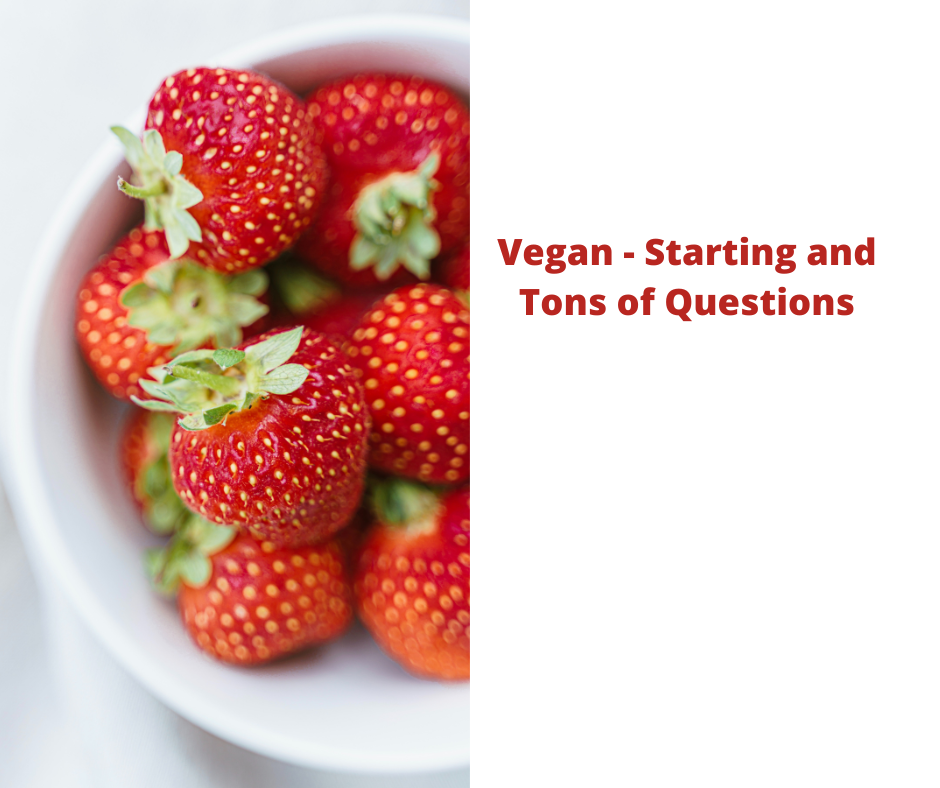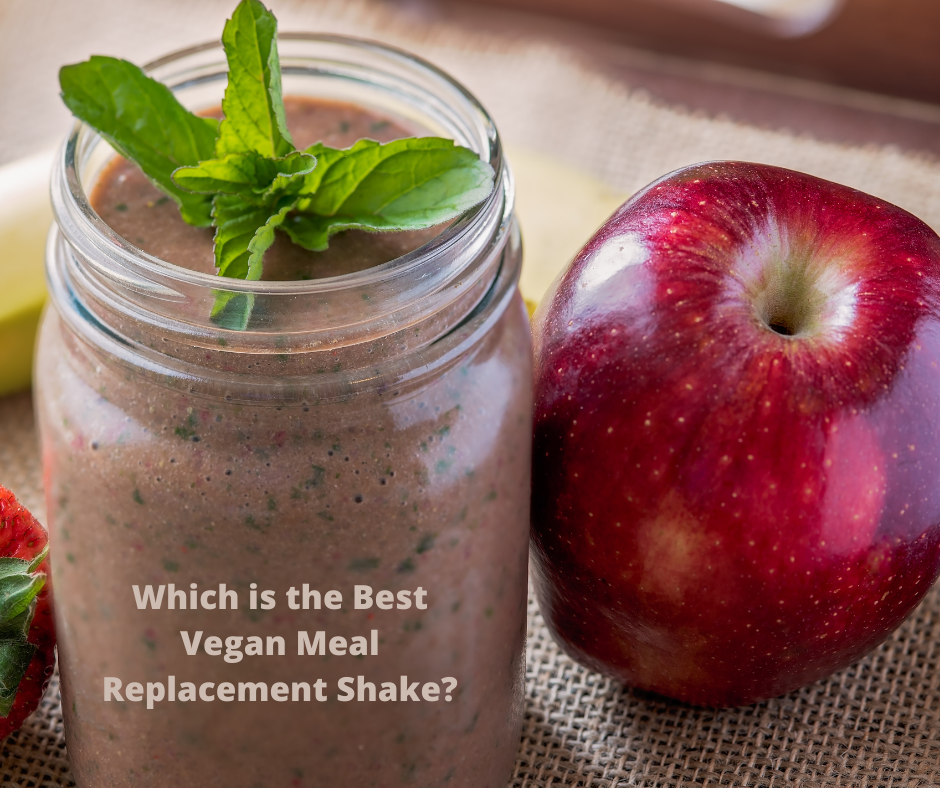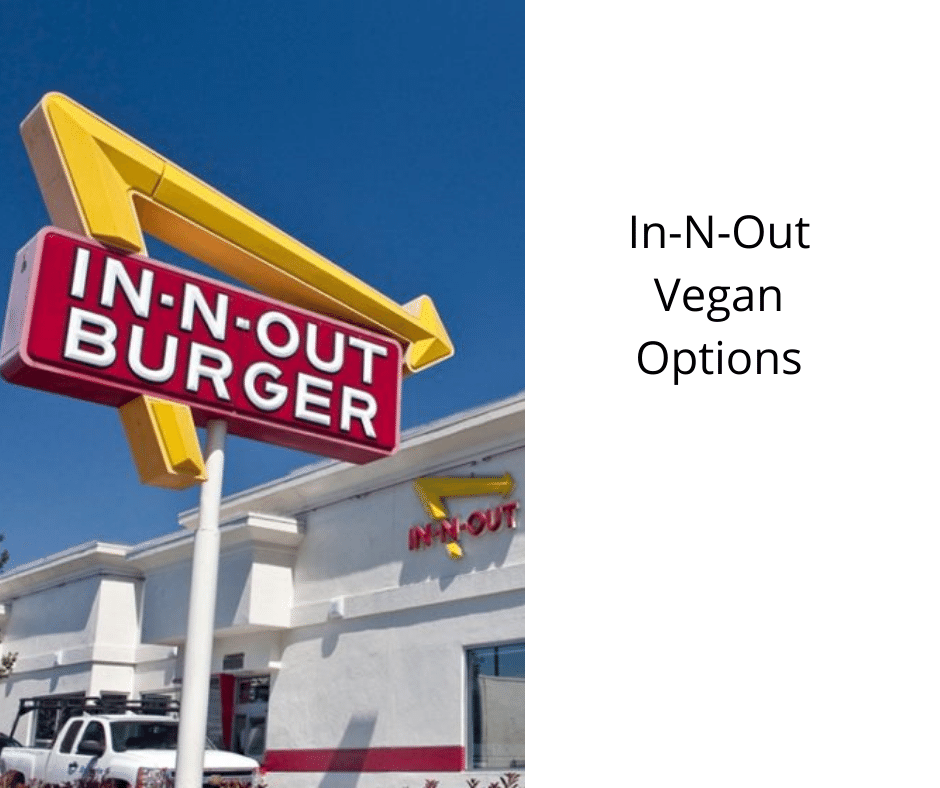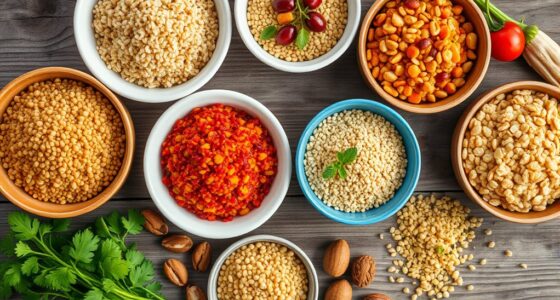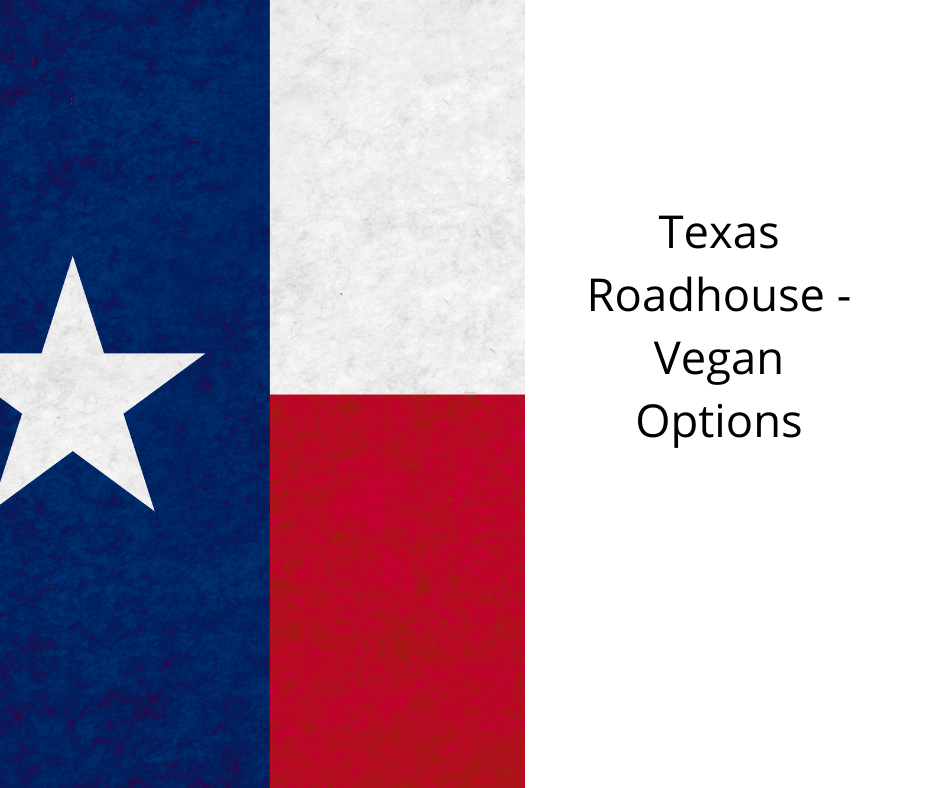Lately, the choice to embrace a vegan lifestyle has become increasingly popular for those looking to reduce their impact on the environment and promote animal welfare. However, moving to a vegan diet can come with its challenges, requiring a notable shift in one’s eating habits. But, with proper planning, it’s entirely possible to enjoy a delicious and nutritious vegan diet.
Many plant-based foods, such as beans, lentils, and quinoa, are rich in protein. In addition, there are plenty of options for tasty vegan substitutes for meat and dairy products. With so many delicious options available, there is no need to miss out on your favorite foods when you switch to a vegan diet.
What Does Vegan Mean?
The term “vegan” was coined in 1944 by Donald Watson, founder of the Vegan Society in England. It refers to a way of living that seeks to exclude, as far as is possible and practicable, all forms of exploitation of, and cruelty to, animals for food, clothing or any other purpose.
In practical terms, this means avoiding all animal-derived products, including meat, fish, poultry, eggs, dairy products, honey, and leather. It also includes preventing the use of animals for entertainment or testing purposes.
Some vegans also choose not to consume plants that have been produced using methods that they believe cause harm to animals or the environment, such as insecticides and fungicides.
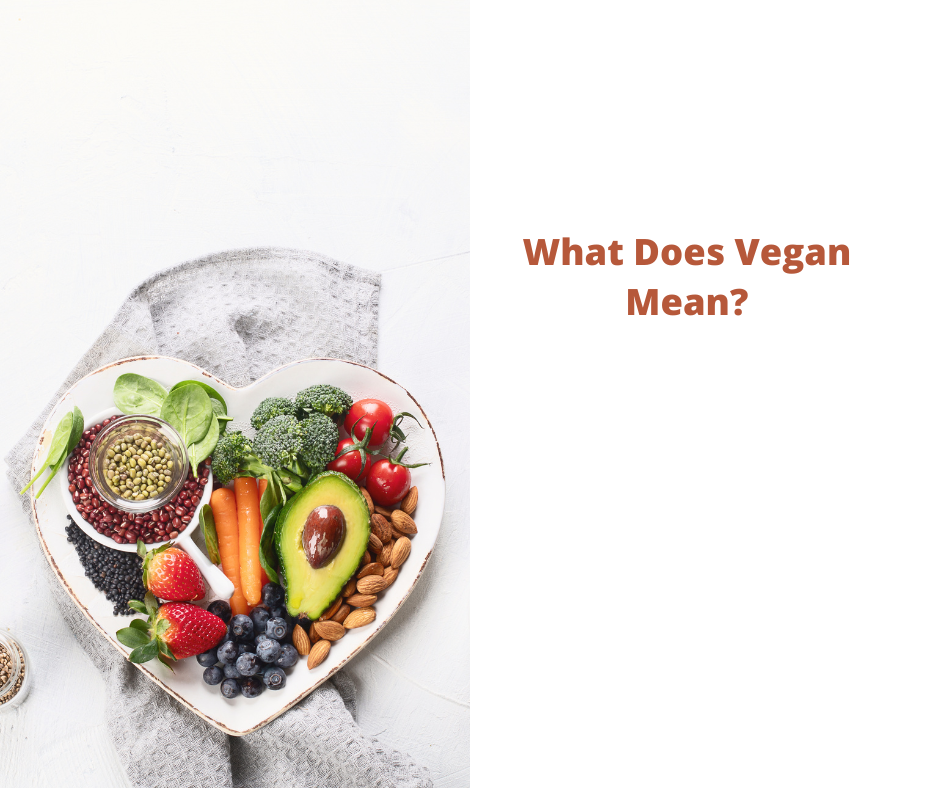
Is Vegan the Same as Vegetarian?
No, veganism is not the same as vegetarianism. Both vegetarians and vegans do not eat meat, but vegans take their commitment a step further by also avoiding all animal-derived products, including eggs, dairy, and honey. In addition, many vegans choose not to wear or use leather, wool, silk, or any other products that come from animals.
What Are the Benefits of Veganism?
There are many reasons why people choose to follow a vegan lifestyle. Some do it for ethical reasons, believing that all animals should be treated with compassion and respect. Others do it for environmental reasons, believing that veganism is a more sustainable way of living. And still, others do it for health reasons, as they think a vegan diet can lead to better overall health.
Whatever the reason, there are many benefits to veganism. Here are just a few:
- Veganism can help reduce your carbon footprint.
- Veganism can help promote animal welfare.
- Veganism can help you lose weight and improve your overall health.
Veganism Can Help Reduce Your Carbon Footprint
The average person’s diet contributes a significant amount of carbon dioxide to the atmosphere. The growing and transporting of food require a lot of energy, and animal agriculture is a particularly emissions-intensive industry. As a result, reducing your meat and dairy consumption can effectively reduce your carbon footprint. However, eliminating animal products from your diet is even better for the environment.
A vegan diet requires fewer resources to produce and generates fewer emissions than a traditional diet. In addition, many vegan foods are more efficient to grow than animal-based foods.
For example, it takes far less water to produce a pound of wheat than it does to make a pound of beef. As the world moves towards a more sustainable future, veganism is an increasingly appealing option for those looking to shrink their carbon footprints.
Veganism Can Help Promote Animal Welfare
There are many reasons why people choose to follow a vegan lifestyle. For some, it is a way to improve their health, while others do it for environmental reasons. However, one of the most common motivations for veganism is a concern for animal welfare. factory farming, animals are often kept in cramped and unsanitary conditions.
They are typically given growth hormones and antibiotics, and they are rarely allowed to exercise or engage in natural behaviors.
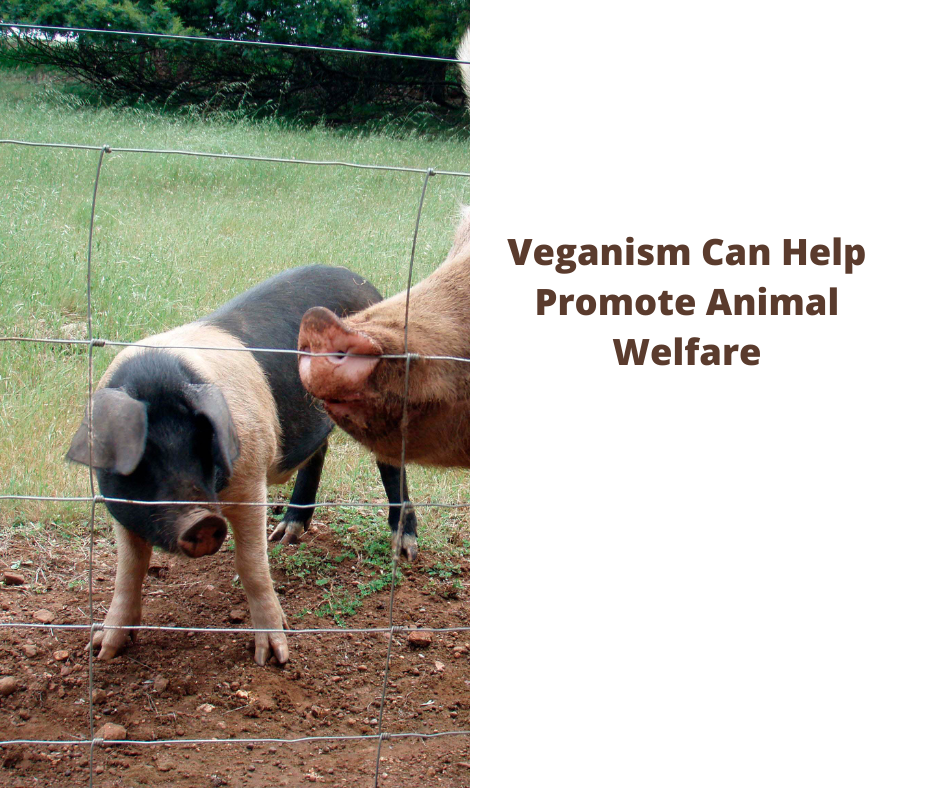
As a result, many animals suffer from health problems and psychological distress. By contrast, vegan foods are produced without harming any animals.
In addition, veganism can help to support small-scale farmers who treat their animals with care and respect. As more people adopt vegan diets, the demand for humanely-produced animal products will increase, promoting higher animal welfare standards.
Veganism Can Help You Lose Weight and Improve Your Overall Health
A vegan diet excludes animal products, including meat, dairy, eggs, and honey. While some people choose veganism for ethical reasons, others do it for health reasons. And there are plenty of good reasons to go vegan if you want to improve your health. For one thing, veganism can help you lose weight.
A study in the Journal of General Internal Medicine found that vegans tend to have lower BMIs than non-vegans. They also found that vegans are less likely to be obese or overweight.
But it’s not just about weight loss. Veganism can also improve your cholesterol levels and blood pressure, lowering your risk of heart disease, type 2 diabetes, and certain types of cancer. In other words, going vegan is a great way to improve your overall health.
Veganism Can Help Protect the Environment
As the world becomes more aware of our actions’ environmental impact, veganism is becoming an increasingly popular choice for those looking to live more sustainably.
A vegan diet requires fewer resources to produce and generates fewer emissions than a traditional diet. In addition, many vegan foods are more efficient to grow than animal-based foods.
For example, it takes far less water to produce a pound of wheat than it does to make a pound of beef. As the world moves towards a more sustainable future, veganism is an increasingly appealing option for those looking to shrink their carbon footprints.
Veganism Can Help Combat World Hunger
One of the most compelling reasons to adopt a vegan diet is to help combat world hunger. Animal agriculture uses a staggering amount of resources, including water, land, and food.
It is estimated that animal agriculture occupies nearly 80% of the world’s habitable land.
Moreover, a large portion of the grain produced yearly is used to feed livestock.
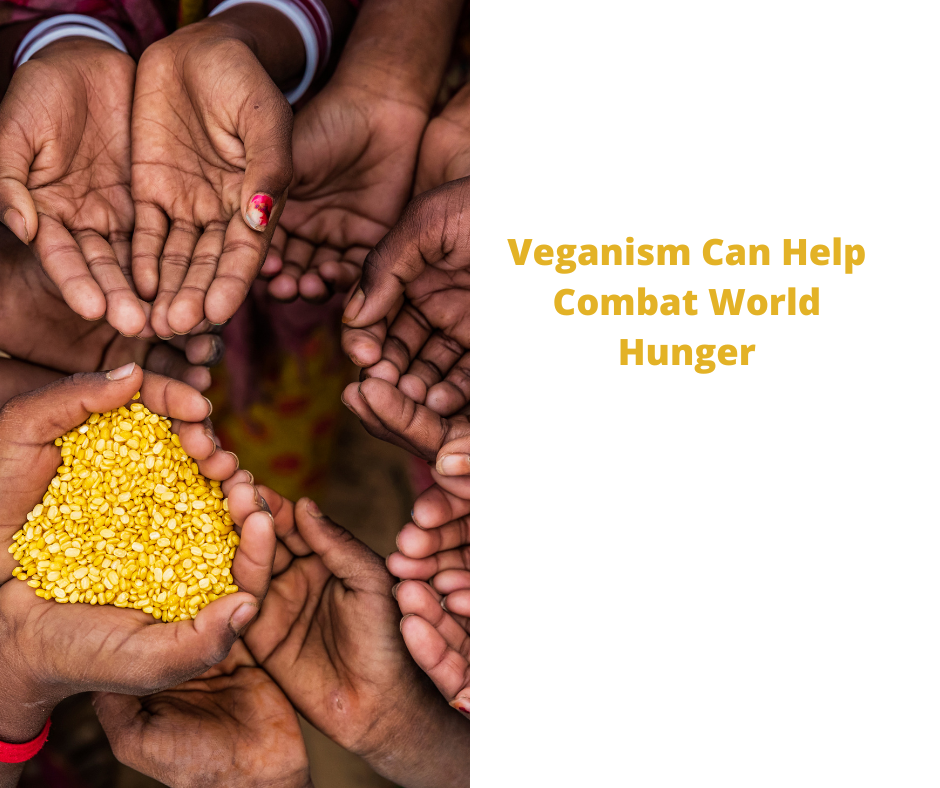
If we redirected these resources toward growing crops for human consumption, we could easily feed the entire world’s population.
Adopting a vegan diet is one small way to help make this happen.
Veganism Can Improve Your Overall Health
A vegan diet excludes animal products, including meat, dairy, eggs, and honey. While some people choose veganism for ethical reasons, others do it for health reasons. And there are plenty of good reasons to go vegan if you want to improve your overall health. For one thing, veganism can help you lose weight.
A study in the Journal of General Internal Medicine found that vegans tend to have lower BMIs than non-vegans. They also found that vegans are less likely to be obese or overweight.
But it’s not just about weight loss. Veganism can also improve your cholesterol levels and blood pressure, lowering your risk of heart disease, type 2 diabetes, and certain types of cancer. In other words, going vegan is a great way to improve your overall health.
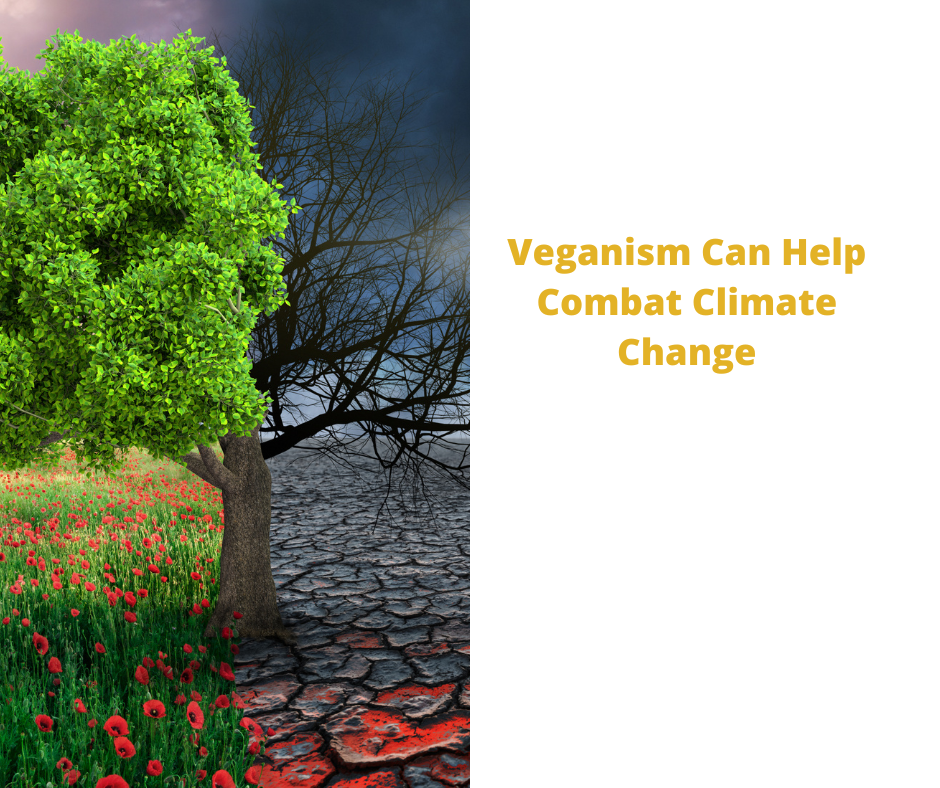
Veganism Can Help Combat Climate Change
One of animal agriculture’s most significant environmental impacts is greenhouse gas emissions.
According to a United Nations’ Food and Agriculture Organization report, animal agriculture is responsible for 14.5% of all human-induced greenhouse gas emissions.
To put that into perspective, animal agriculture emits more greenhouse gases than the entire transportation sector.
If we want to combat climate change, one of the most important things we can do is reduce our consumption of animal products. And adopting a vegan diet is a great way to do that.
Can Veganism Give You More Energy?
Can veganism give you more energy? The simple answer is yes, veganism can give you more power. When you remove animal products from your diet, you are essentially removing a significant source of fat and cholesterol.
This means that your body has to work less to process the food you eat, freeing up more energy for other activities. In addition, vegan foods are often packed with nutrients and antioxidants that can help to boost your overall health and vitality.
As a result, many people who switch to a vegan diet report feeling more energetic and vibrant. If you are looking for a way to increase your energy levels, veganism may be worth exploring.
What foods are vegan?
You can consume plant-based foods on a vegan diet, including fruits and vegetables. Legumes, such as peas, beans, and lentils. Nuts and seeds. bread, rice, and pasta are examples of carbohydrates. Dairy alternatives include soymilk, coconut, and almond milk in dairy products. Vegetable oils are one type of oil available to vegans.
What Vegan Mean?
What is vegan makeup? A vegan is a strict vegetarian who does not consume animal-based foods (such as flesh, eggs, or dairy products).
What Do Vegans Not Eat?
Vegetarianism has several degrees, and veganism is the most rigorous. Vegetarian diets generally exclude meat, but vegans limit their diet only to include plant-based foods. This implies that vegans avoid any animal-based products like meat, fish, eggs, and dairy. They often cut out animal byproducts such as gelatin as well.
What Is a Difference Between a Vegan and a Vegetarian?
Some people on a plant-based diet may avoid eating meat and animal products for various reasons. A vegan diet excludes all beef, poultry, fish, shellfish, dairy, and eggs, whereas a vegetarian diet only consumes them.
Do Vegan Eat Eggs?
Vegetarians eat eggs and dairy products, not fish, meat, or poultry. Vegans also stick to the no-meat principle but refuse animal substances like eggs, dairy, and honey. Eggs had a poor reputation in the past because of their yolks’ high cholesterol concentration.
Are Eggs Vegan?
The bottom line is that vegans do not consume animal foods, including eggs, for various reasons, but one of the primary reasons is an interest in animal welfare. However, there is a movement among some vegans to include eggs in their diets if they are confident they were produced by hens who were raised ethically.
Can Vegans Be Fat?
Beans, rice, and other grains are similar because they provide fewer grams of protein than carbohydrates. Beans, rice, and other grains have more carbs than protein. In the long run, consuming more calories than your body can utilize causes weight gain.
Can Vegans Drink Alcohol?
Fortunately, nearly all hard alcohol on the market—including bourbon, whiskey, vodka, gin, and rum—is vegan. Except for cream-based liqueurs and beverages that mention honey on the label, almost all distilled spirits are vegan.
Do Vegans Lose Weight Fast?
If you follow a whole food plant-based diet, vegans may lose weight rapidly. This entails eating foods in their natural, unprocessed forms, such as fruits, vegetables, whole grains, legumes, nuts, and seeds. Compared to traditional Western diets high in nutrients but low in calories, these meals are nutritious yet calorie conscious.
Can Vegans Eat Fries?
Is it possible to be a vegan and eat french fries? The short answer is yes! Most fries are entirely vegan—except on rare occasions. McDonald’s French fries, for example, include beef fat, which makes them nonvegan.
Can Vegans Drink Coffee?
Beans marketed as “vegan” are not always vegan. It’s also true for vegan coffee. There is no “vegan coffee” because all coffee is vegan. The seeds of a plant are used to make coffee. There’s no animal input from start to conclusion—not even by-products of animals.
Is It Healthier to Be Vegan?
According to the American Journal of Clinical Nutrition, vegan diet followers tend to have lower body weights, lower blood pressure, and lower cholesterol. Furthermore, it was discovered that vegans consumed more fiber, folate, vitamin C, vitamin E, potassium, and magnesium and less saturated fat.
Can Vegans Eat Fish?
VEGANS DON’T EAT FISH There are three main reasons vegans don’t consume fish: The manufacture of these ingredients is considered unethical, exploitative, or dangerous to the health of animals. Vegans avoid meat, poultry, and fish products like honey, dairy, and gelatin.
Is Being Vegan Healthier than Eating Meat?
According to numerous studies, a vegetarian diet is the most effective way to stay healthy. Plant-based diets are more beneficial than meat-based diets for heart disease, cancer, and mortality.
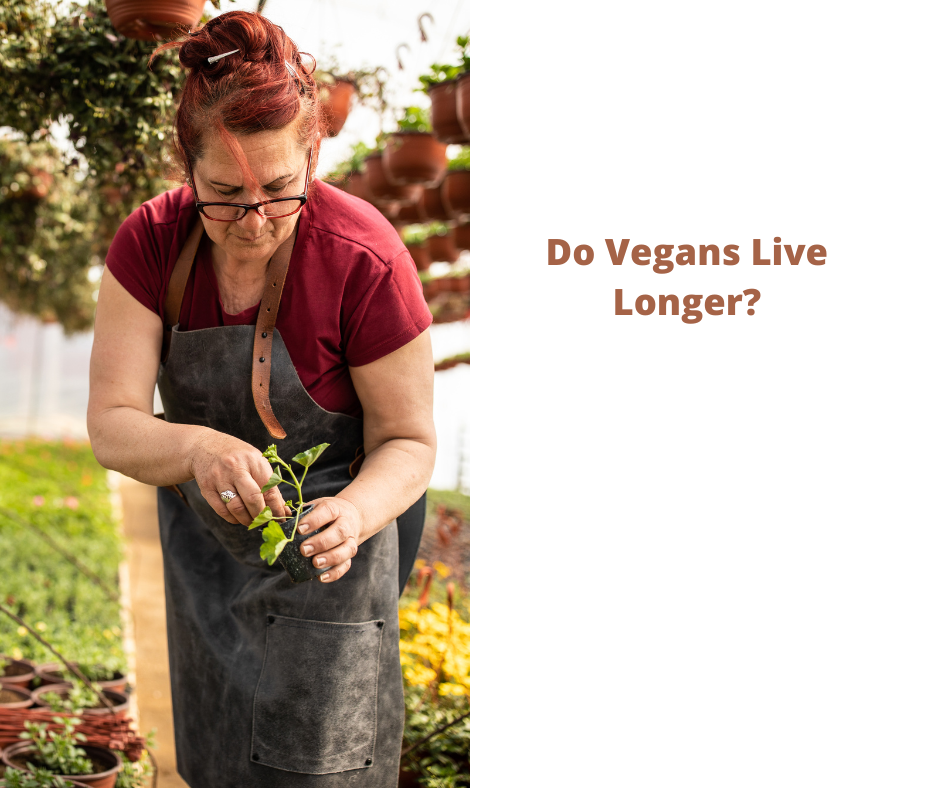 Do Vegans Live Longer?” class=”wp-image-77″/>
Do Vegans Live Longer?” class=”wp-image-77″/>Do Vegans Live Longer?
When vegans were removed from the rest of the group, they had a 15% reduced chance of dying prematurely from all causes, implying that a vegan diet might help people live longer than those who follow vegetarian or omnivorous diets.
Do Vegans Eat Rice?
So, what do vegans consume? Grains (pasta, bread, rice, couscous, bulgur, millet, quinoa) – it’s usually better to have whole grains! legumes (chickpeas and other beans are a great source of plant-based proteins!), and seeds and nuts are all vegan. Fruits and vegetables, of course, are vegan as well.
What Do Vegans Eat for Breakfast?
There are many delicious vegan breakfast options! Oatmeal with fresh fruit, pancakes or waffles with syrup, a tofu omelet, bagel with cream cheese, smoothie, or cereal with milk is all great choices.
What Can’t Vegans Eat?
Vegans do not eat any animal products, including meat, poultry, fish, eggs, dairy, and honey. They also avoid using products containing animal-derived ingredients such as leather, wool, silk, and down. Additionally, some vegans choose not to consume caffeine or sugar because of how these substances are produced.
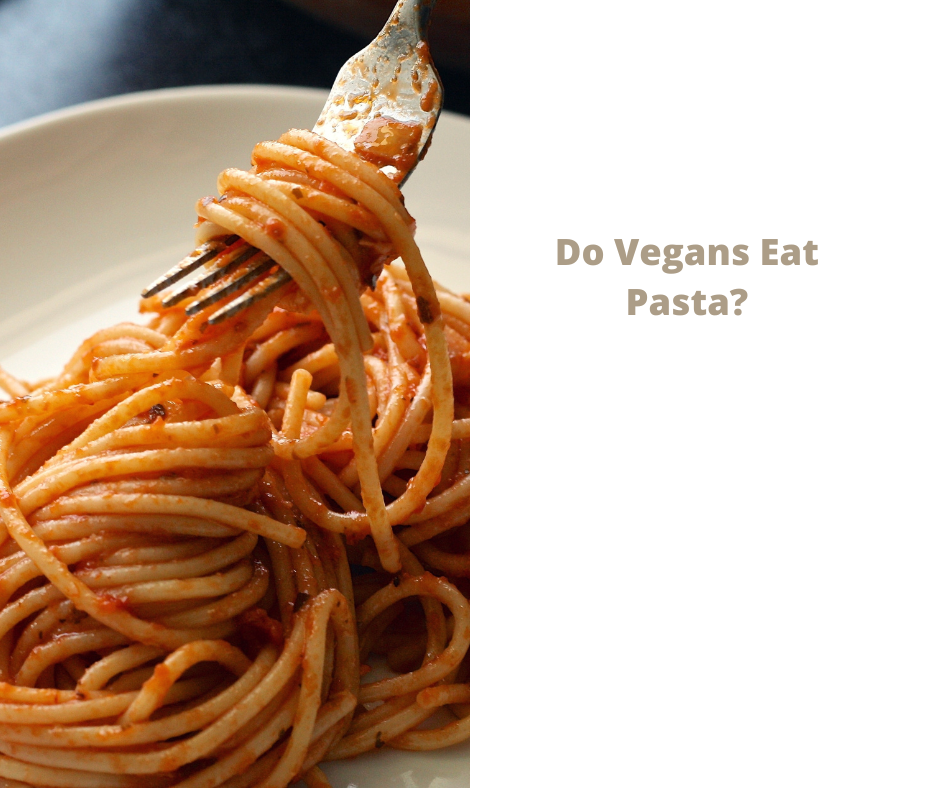
Do Vegans Eat Pasta?
Is pasta vegan? Most packaged pasta, including spaghetti, rotini, and other varieties, is entirely vegan. Simply check the ingredients on your package to see if they’re vegan! “Egg” may be an ingredient in “fresh” pasta; however, this isn’t always the case. Although there are no animal-derived components in most pasta, it’s best to double-check just to be sure.
Is Peanut Butter Vegan?
Peanuts and salt are the most common ingredients in peanut butter. Oil and/or sugar may also be added to some brands. Occasionally, you’ll find a type that contains honey, but virtually all peanut butter is vegan-friendly.

Is It Possible to Be Vegan While Eating Peanut Butter?
Yes, it is possible to be vegan while eating peanut butter. Peanuts and salt are the most common ingredients in peanut butter. Oil and/or sugar may also be added to some brands. Occasionally, you’ll find a type that contains honey, but virtually all peanut butter is vegan-friendly.
What Is a Good Breakfast for A Vegan?
A vegan breakfast can be a healthy and satisfying way to start the day. Oats and porridge are a great option as they are high in fiber and can be easily made with plant-based milk.
Whole wheat vegan waffles or bagels are a good choice for something a little heartier. If you’re looking for something on the sweeter side, cinnamon quinoa breakfast bowls or oatmeal breakfast cookies are both delicious and nutritious. No matter what your taste, there’s a vegan breakfast option that’s perfect for you. So why not give one of these recipes a try today?
Can Vegans Eat Chocolate?
Chocolate is one of the world’s most beloved foods, and for a good reason. It’s rich, decadent, and has a unique flavor that can’t be replicated. And, best of all, it’s vegan-friendly! Chocolate is made from naturally vegan cocoa beans.
However, many commercially-available chocolate products contain milk or other animal-based ingredients. Fortunately, a growing number of vegan chocolate options are on the market. These products contain cocoa butter, sugar, and other plant-based ingredients.
And they’re every bit as delicious as their non-vegan counterparts! So next time you’re in the mood for some chocolate, rest assured that you can indulge without harming any animals.
How Do Vegans Get Skinny?
A common misconception is that vegans are automatically skinny. While it is true that veganism can lead to weight loss, there is no guarantee that all vegans will be slim. There are a variety of factors that affect weight, including metabolism, activity level, and genetics.
That said, veganism can be an effective way to lose weight for some people. One reason is that vegan foods are typically lower in calories than animal products. For example, a serving of leafy greens has far fewer calories than a serving of chicken.
As a result, people who eat a vegan diet may naturally eat fewer calories and lose weight. In addition, veganism can promote healthy eating habits, leading to sustainable weight loss over time.
What Is Vegan Face?
The vegan face is a term for a slack, unhealthy appearance brought on by a lack of protein in your diet. The skin is parched, sallow, and flaky. Protein literally raises the face: it makes it look fuller (in a good way) and more awake and refreshed.
What Is the Problem with Veganism?
The risk of eating too much carbohydrate is a common concern among vegan dieters. Vegan diets are typically lower in protein, which can cause blood sugar swings in certain people. There’s also the danger of overeating carbohydrates on a vegan diet, mainly because legumes are frequently eaten as a protein source but are high in carbohydrates.
Can Vegans Smoke?
Vets prescribe cigarettes that are free of animal products. Vegan smokers, on the other hand, may use specific tobacco products. Because some cigarettes are vegan doesn’t imply they’re better! So it’s best to avoid them to preserve your health and the animals’.
Is Coke a Vegan?
Coke is not a vegan product. It contains animal-derived ingredients, including sugar from cane whitened with bone char. However, some Coke products are vegan, such as Coca-Cola Zero Sugar in the UK and Ireland. You can find a complete list of Coke’s vegan products on their website.
What About Vegan Wine?
Wine is made from grapes, which are naturally vegan. However, some producers use animal-derived ingredients in the wine-making process. For example, egg whites or fish bladders may be used to filter the wine. As a result, not all wines are vegan.
Fortunately, several companies produce vegan wine.
Why Is Wine Not Vegan Friendly?
The fining agents are then eliminated once the fining process is completed. So, egg whites or milk protein are taken out of the finished product after they’ve done their job. However, due to wine’s organic makeup, tiny amounts of animal by-products may be transferred into it; therefore, it is not vegan.
How Can I Lose My Stomach Fat?
Trim the fat, Consume a balanced diet. Choose healthy plant-based meals, such as fruits, vegetables, and whole grains, while limiting your intake of high-fat dairy products and processed meat. Replace sugary drinks. … Keep serving sizes in mind. … Make regular exercise a part of your daily routine.
Does Being Vegan Make You Lose Hair?
You may have increased hair shedding if your diet lacks nutrients such as protein, iron, or zinc. A balanced vegetarian or vegan diet that includes these elements can help you avoid hair loss.
What Happens to Body when You Go Vegan?
Meat and animal products are removed from your diet, with their place taken by plant-based whole grains, pulses, healthy oils, and almonds. Adopting this lifestyle change improves your vitamin and mineral status and reduces your consumption of less healthful processed meats and fats.
Are KFC Fries Vegan?
Is it true that KFC fries are vegan? The actual recipe fries at KFC are vegan. However, if you’re worried about cross-contamination, check with your restaurant to see whether they cook in the same oil.
Is Ketchup Vegan?
To put it another way, Heinz ketchup is safe for vegans. Not only are their ingredients plant-based, but when it comes to Heinz tomato ketchup, they’ve confirmed that the product is suitable for a vegan diet. Our sugar is not refined with bone char from animal bones, so it’s entirely appropriate for vegans.
What at Subway Is Vegan?
The chain’s only vegan dish is Italian (white) at all locations. However, the bakery offers other plant-based bread alternatives that differ by area. These include Harvest, Hearty Italian, Roasted garlic, Ciabatta, and Sourdough. The tomato basil and spinach wraps are also animal-free.
Are Mc Donald’s Chips Vegan?
In the US, McDonald’s French Fries are unsuitable for vegans since they include beef flavoring derived from milk. McDonald’s fries were formerly cooked in lard (animal fat). Customers complained when McDonald’s began using vegetable oil, therefore, beef flavoring was added to make things right.
Is There Any Truth to The Claims that Mcdonald’s Oil Is Animal-Based?
After McDonald’s switched out animal lard for vegetable oil, they received complaints that the signature fries were no longer flavorful. As a result, they employ beef flavoring to maintain the famous food, neither vegan nor vegetarian.
What Vegetables Can Vegans Eat?
Brussels sprouts, asparagus, cabbage, cauliflower, kale, and collard greens are other vegetables to try. Other leafy green veggies include bok choy, spinach, kale seed cress, watercress, and mustard greens. Broccoli turnip greens and artichokes black currants are additional options. Fruits and vegetables are excellent sources of nourishment; several of them may be substituted for animal proteins in meals.
Is McDonald’s Coffee Vegan?
Yes, McDonald’s coffee is vegan, without milk or cream.
Do Vegans Drink Soda?
Yes, vegans can drink soda. While the ingredients in most sodas are not vegan, some vegan-friendly options are available. For example, Coca-Cola and Pepsi have vegan-friendly versions with cane sugar rather than high fructose corn syrup.
What Happens When You Go Vegan for A Month?
You may lose weight. When you first go vegan, you may lose a lot of weight within the first week or two as your body eliminates toxins. This is because a vegan diet is typically lower in calories and higher in fiber than other diets. You’ll also likely have more energy and better digestion.
You may eat more healthfully. Replacing unhealthy meat-based meals with plant-based alternatives helps improve your overall nutrition. Vegan meals are typically high in antioxidants, vitamins, minerals, and healthy plant-based proteins. You’re also likely to consume more fruits and vegetables than before.
You may feel more energetic. Animal products can be complex for the body to digest, so going vegan often improves energy levels as your digestive system rebounds from eating cleaner foods. Additionally, eliminating dairy products – high in saturated fat – can help reduce cholesterol levels and improve heart health.
Can Vegans Eat Chips?
Are potato chips vegan? The short answer is “yes.” Because potato chips are composed primarily of potatoes, they’re a decent place to start if you’re looking for a tasty snack or some crunchy sweets after a long day at work.
How Do Vegans Get Protein?
A vegan or vegetarian diet should be followed to acquire the requisite variety of amino acids. High-protein foods include tofu, tempeh, lentils, nuts and seeds, and quinoa.
Do vegans eat cheese?
Avoid animal flesh, shellfish, dairy products, eggs, and honey.
What Happens to Your Body When You Stop Eating Red Meat?
You may also experience less bloating. In most cases, however, indigestion you feel after cutting red meat is due to eating more healthy, fiber-rich meals rather than any particular food. You’ll add healthful bacteria to your system in the long run, which will help reduce overall inflammation and make you feel less bloated.
How Do Vegans Get B12?
B12 is found in foods such as fortified breakfast cereals, nutritional yeast, and seaweed. However, many vegans also take a B12 supplement to ensure they’re getting enough. B12 is only found in foods fortified with it (including some plant milk, soy products, and certain breakfast cereals) and B12 supplements. Microorganisms are the source of vitamin B12 in supplements, fortified meals, or animal products.
Do Vegans Look Younger?
In general, vegans do not seem any younger than those who eat meat and dairy products, although many of them do live longer and healthier lives. Still, the effects of aging are not just determined by what we consume.
Are Bananas Vegan-Friendly?
Bananas have long been a fast and nutritious go-to snack for vegans. One of the most versatile fruits, they are eaten alone and in desserts.
Are Apples Vegan?
Yes, apples are vegan.
Why Can’t Vegans Eat Potatoes?
Potatoes are just a source of starch with little or no nutritional value. Bacon bits, sour cream, butter, and other additions make them one of the worst possible meals in a hurry.
Can Vegans Eat Pizza?
Yes, vegans can eat pizza. There are vegan-friendly pizza options available with plant-based cheeses and sauces.
Is Popcorn Vegan Friendly?
Popcorns are seasoned with salt and sugar before being cooked in oil. That is how traditional popcorn is prepared, which makes it vegan. Many popcorn producers still use the same method, although flavoring their product transforms it into something non-vegan.
Is Oatmeal Vegan?
Is it possible to be a vegan and eat oatmeal? You may undoubtedly eat it as a vegan. Not only can you consume it, but you may top it with any of your favorite toppings and make it one of the best breakfasts ever imaginable. Because oats are plant-based, all you have to do is use vegan ingredients to prepare it.
Is Coconut Milk Vegan?
Coconut milk is a dairy-free liquid derived from the coconut’s pulp, flesh, or meat combined with water to make a creamy white substance known as coconut milk. It’s easy to prepare fresh if you have access to coconuts. It’s accessible, inexpensive, and vegan (and dairy free).
Do Vegans Eat Bread?
Several types of bread are entirely vegan, including many flatbreads, savory bread, and dry bread. Fluffier brioche-style bread are more likely to include animal ingredients. The easiest method to verify if a loaf of bread is vegan is to read the label.
Do Vegans Drink Coffee?
It may seem like an irrelevant inquiry to ask if coffee is vegan, but the fact that coffee comes from beans makes it a little more challenging. Coffee beans are vegan, as are standard black coffee. However, while regular black coffee is vegan, many people use milk to make the beverage. Unless it’s made with plant milk!
Can Vegans Eat Ice Cream?
Is it possible for vegans to consume ice cream? Yes, absolutely! There are a plethora of delicious dairy-free ice creams on the market, as well as easy recipes for making your own excellent versions at home.
What’s a Vegan Who Eats Fish?
Pescatarians and vegetarians have a lot in common. They eat fruits, vegetables, nuts, seeds, whole grains, beans, eggs, and dairy products while abstaining from meat and poultry. However, they differ from vegetarians in one respect: Pescatarians consume fish and other seafood.
